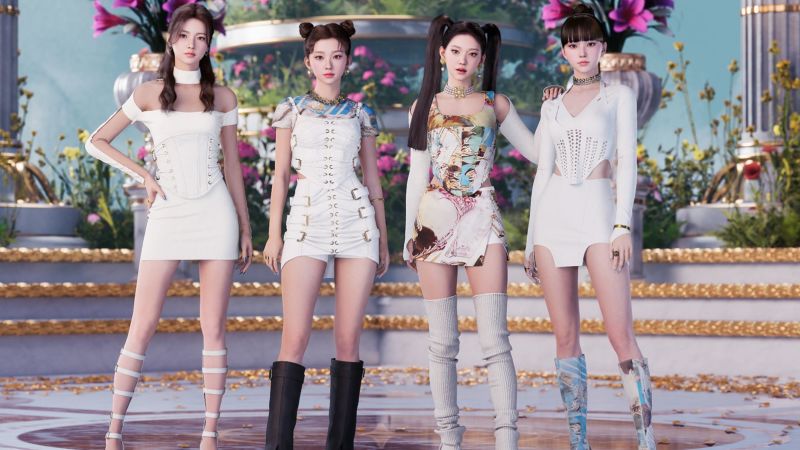CNN — In the music video for their latest single “DTDTGMGN,” members of the South Korean band Eternity dance in perfect sync to a bubblegum pop beat in a neon pink room adorned with school uniforms and celebrity posters. The K-pop video features dizzying camera movements and rapid scene changes, typical of the genre that has become a global sensation. However, what sets Eternity apart is that none of its 11 band members are real—they are computer-generated stars created using AI technology. Pulse9, the group’s creator and management company, believes that virtual bands have a significant advantage over real-life artists. One member of Eternity, Zae-in, can sing, rap, design fashion, and act—all through the combination of 10 different performers who contribute their talents to her avatar as needed. Real-time face-swapping technology and AI-generated voices bring Zae-in to life. While early forms of deepfake technology have existed for almost a decade, recent advancements in AI-generated video and audio have made it easier for companies like Pulse9 to create realistic virtual characters. Eternity’s debut music video received mixed reviews, with some viewers finding the band members’ facial expressions unnatural. However, with their subsequent release, “No Filter,” followers noted that Eternity looked almost indistinguishable from real artists. Other K-pop agencies, such as SM Entertainment and Hybe, have also been experimenting with AI in their productions. Metaverse Entertainment, a collaboration between video game publisher Netmarble and Kakao Entertainment, debuted MAVE, a virtual girl group. Unlike Eternity, MAVE’s members were entirely generated from scratch using CGI, with their vocals being a blend of human and AI-generated elements. The music video for MAVE’s debut single, “Pandora,” has already gained 25 million views on YouTube. The potential for virtual pop stars extends beyond their music videos. Advancements in AI language programs could allow fans to engage with and build personal relationships with their favorite virtual idols. Metaverse Entertainment is already exploring this concept through apps that enable direct interaction with MAVE. The development of virtual idols could benefit companies by reducing the costs associated with training and managing real-life artists. Additionally, virtual pop stars have the advantage of never getting sick, aging, or becoming embroiled in scandals. However, major agencies are unlikely to replace their real-life bands entirely, as some fans prefer human artists. Eternity’s creator, Park, compares the emergence of AI to the invention of photography, stating that virtual idols are simply a new form of content rather than a threat to real artists like BTS.
The Emergence of AI-Powered Virtual K-pop Bands Gains Momentum in South Korea
24

